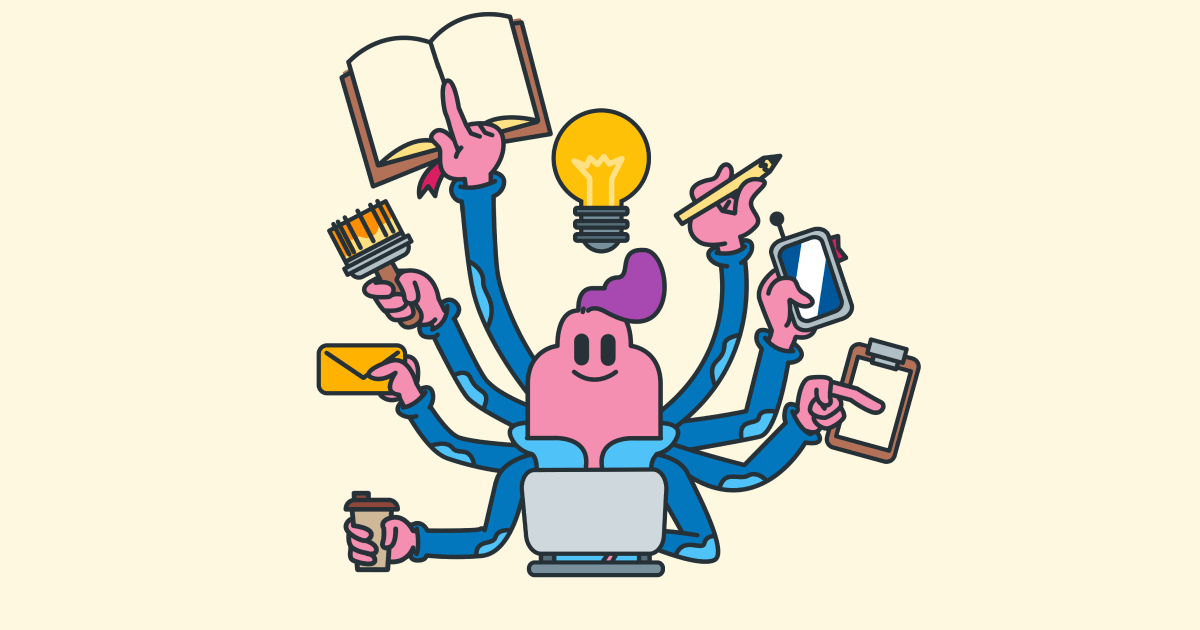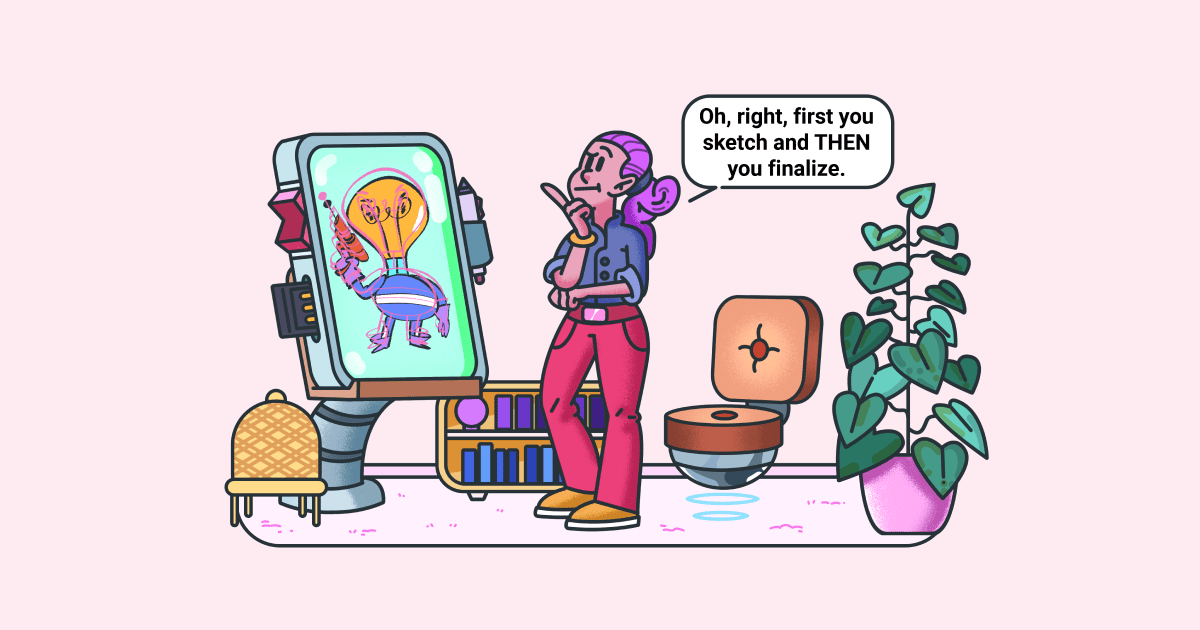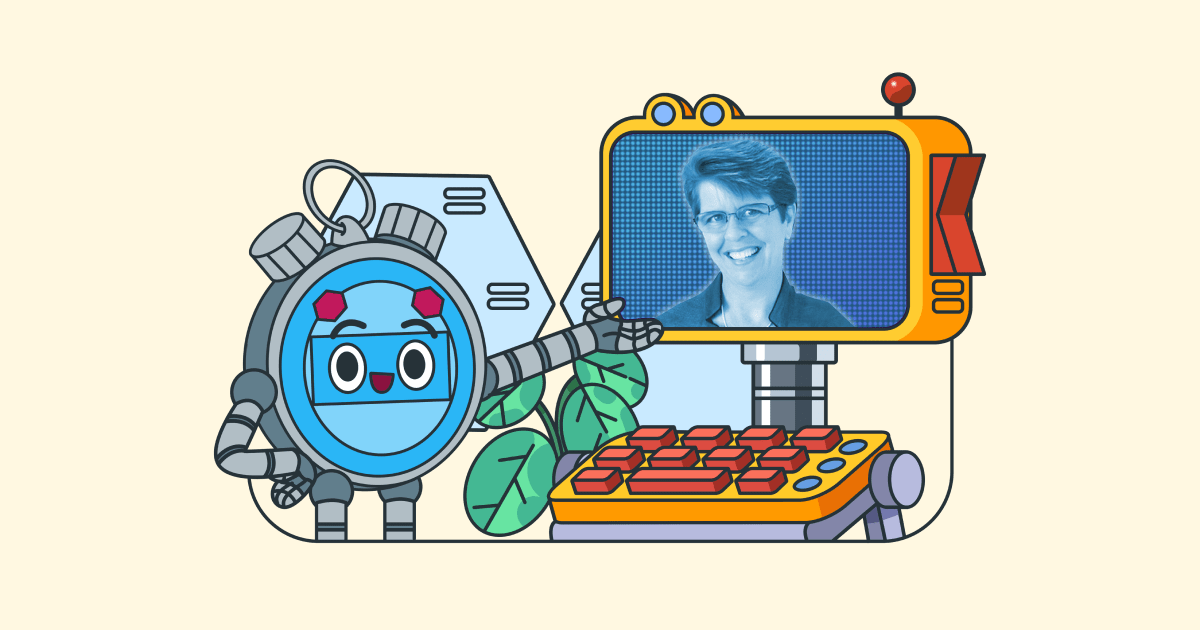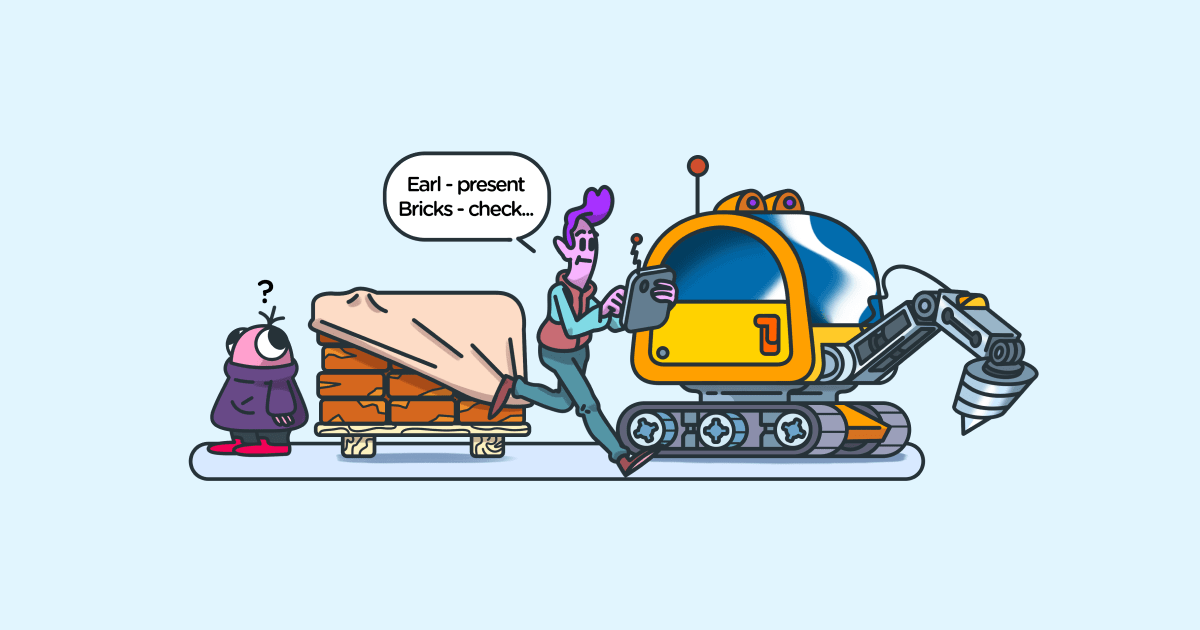Things every freelancer needs when working from home
Last updated on: March 1, 2023
Any work-from-home freelancer has definitely noticed how, over time, certain items started to stand out in their workflow. They either help them de-stress, make work time shorter, or help them focus better. We’re talking organizers, stress-relief toys, alarm clocks, wall artwork, or even quality headphones. In this article, we dive deep into creating a workspace that boosts your productivity and how to choose the best items to improve your workflow.
More precisely, I’d like to tell you about the importance of arranging your workspace, and how a simple list of 10 items can make a world of difference in your workflow.
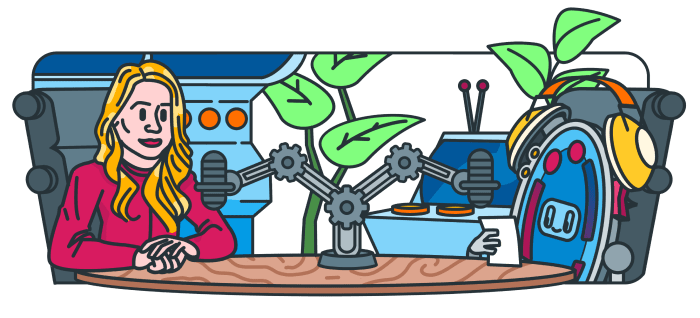
Table of Contents
Items one freelancer can’t work without
All of this started with a single tweet.
Kaleigh Moore is a successful freelance writer who shared a tweet about 10 things that help her write. The tweet made me consider which 10 things I couldn’t work without either, and I was surprised at how different our lists were. That gave me the idea for this text – since we are all productive in different ways, it means that different objects or items will boost our productivity, right?
And personally, I think such information is invaluable to share with other freelancers.
So, I decided to contact Moore, and see if I could pick her brain a little further for any advice she could offer to fellow knowledge workers.
How to choose the best room for your workspace
First, to just briefly touch upon choosing the location of your home office. Moore was more than willing to share her example:
“I’m fortunate to have a spare bedroom we’ve converted into my home office, which is a designated space with doors that close—ideal for deep work.”
Deep work is key here. No matter how you choose to arrange your workspace, it needs to provide you with enough peace and quiet for full focus. If your bed will be too tempting to lay down and chill out every two hours, then a bedroom would be a bad choice.
However, comfort should be the second important thing on your list. Especially for long work hours. “I wanted to create a space that was cozy, comfortable, and not too cluttered, so that’s how I’d describe what it looks like.”, Moore concludes.
Here are some things to consider when choosing the best location for your workspace.
Think about your living habits
For the first few months, I was working on my laptop out of my bedroom. Since I only go there at night to sleep, during the day it was unoccupied. And after I was done working, I could “reset” my mind by spending the rest of the day outside, in the living room, dining room, and kitchen. So when I would move back to the bedroom, it didn’t feel like the “daytime office” anymore.
However, I do believe that a separate office is a much better choice.
Those who don’t have the luxury of a spare room should definitely look into sectioning off a corner of the quietest room for themselves.
Avoid “high traffic” areas of your home
This pretty much goes without saying.
If you’re able to, pick a room that’s the farthest from any indoor noise, like the kitchen or the living room. Set up your workspace in an area where there’s as little “foot traffic” as possible. This means no visits to the fridge, or someone entering the bedroom to go to the wardrobe, or watch TV, etc.
Starting questions to ask yourself
When choosing a room, here are some questions that can help.
- How much peace and quiet do I need?
(some work better with some background noise, while others need strict quiet); - How many windows do I need? Is there enough natural light?
(lack of light can cause vision issues, while also making you drowsier); - Is the window view distracting, relaxing, or inspiring?
- Is there enough room to place everything I need?
(things like a desk, chair, shelves, books, equipment, etc.); - How easy is it to “unplug” from my workspace?
(to step aside and not use that space until the next workday. For example, not using the same computer for work and leisure).
Technical and connectivity issues also play a factor
And of course, if you work online, you will want a room that has the strongest WiFi signal. Also consider how many power outlets there are, and where they are located.
- Will you be able to place a work desk in that room without completely rearranging your furniture?
- Is there enough room for all the cables, or will someone be tripping over them, or will pets get in the way?
- How easy will it be to connect to the router, if it’s not in the same room?
- And my personal favorite: will the electric charge actually burn your fuses if there are more than a few things plugged in? (happened a few times, so I had to switch up some things)
Not too many people seriously consider this, so keep your overall number of electronic devices in mind.
How to choose the right equipment for your workspace
Did you know that the equipment you buy (or miss out on) can play a huge part in your productivity, how you manage stress, time, or your schedule?
In the original tweet, Moore had listed items that are very specific to her. Looking at it, one starts to realize how such a list reflects the freelancer who makes it – their struggles, priorities, habits,… If we were to make our own lists, we could definitely see some similarities and differences in what we consider productive.
And Moore seems to agree:
“I think it does tell you a lot about what they value and their work style. Many of us who write full time have issues with back pain from hunching over in front of a computer screen all day, so of the lists I’ve seen, products related to easing that physical discomfort are very common.”
So, how do you know what to get, or what you need?
Maybe your current setup is working for you at the moment. However, as our work changes, so do our habits and needs. How do you know which items to get before it’s too late?
Look at your workflow from a different angle
In Moore’s own experience, it was lower back pain seven months in that made her realize she needed a new chair and a heating pad. But, she also has advice for other freelancers who are unsure of what they might need either now, or in the future:
“I think a lot of it has to do with stepping back from the daily grind and looking at what’s working vs. what’s not. If you can point to things that drive you nuts, that’s a red flag.
Ex: Is your tech breaking/glitching to the point where it makes work frustrating or makes you look unprofessional with clients? Time to upgrade.”
Ask around among your peers
A great shortcut to finding out what plagues freelancers in your niche is to simply conduct a little research. Moore herself mentions how helpful this method was.
“Asking around helps a lot—you get some great tips just by asking fellow freelancers what they’ve purchased and liked (as well as what to avoid.) I did a lot of research before making any big equipment purchases for my biz (reading reviews, warranty policies, etc.) to try and make the best, most responsible decision.”
After all, you will need the best furniture, items, and gadgets, to last you long-term. And when it comes to such purchases, you want to be sure it’s not a miss.
Alternatively, you can form your own list and ask for others’ experiences with the same or similar products before making the final decision.
Know what items to avoid
Of course, there will be times when you will make impulse purchases or mistakes.
“I think a lot of freelancers get caught up/waste money on unnecessary software. It might feel like fancy tools will help improve your workflow, but oftentimes they just get in the way and make things more complicated.” Moore starts, and I couldn’t agree more.
Countless apps tried and hours spent only to learn they don’t suit me. And so she claims to keep her tech equipment as minimal as possible as far as productivity goes.
However, we can agree that mistakes should also be normalized. After all, how will you learn which items or productivity apps are suitable for you without some trial and error?
“I also once bought a standing desk thinking it would improve my physical pain from sitting all day”, Moore recalls one particular situation, “–but it turned out I don’t like/am not good at doing deep work while standing, so that purchase ended up getting sent back!”
Items that can boost (or deter) your productivity
So, when we look at Moore’s original tweet, her list of 10 productivity-boosting items seems very “her”.
The space heater had to be my personal favorite, as it’s also an object I can’t do without during the winter months. Coming fresh off my correspondence with her, I’ve delved into researching which items affect our productivity, whether it’s purposefully or not.
And there were some interesting finds.
Desks and chairs – ergonomic is the word you’re looking for
These two should be your centerpieces. They can make or break your concentration in a blink of an eye:
- Too low or high a desk will affect your posture;
- A bigger desk can lead you to hoard items you don’t need and you risk overcrowding it;
- A stiff chair causes back and hip problems;
- While too comfortable a chair makes you too relaxed, leading to procrastination or sleepiness, etc.
Both need to be just comfortable enough to mainly allow you to sit at your workspace for long periods of time.
Stress-relief items
Our work suffers when we’re stressing over personal issues, deadlines, or clients. This is why your own list should probably have one designated space for such an item.
These can be:
- Meditation or yoga apps;
- Fidget toys – stress relief balls, fidget cubes, slimes;
- Scented candles or essential oils;
- Weighted lap blanket (to prevent shaky legs).
One Amazon search is enough to give you an idea of what kind of item would help you refocus on your work in times of stress.
Items to help tune out distractions
Whether it’s distractions online or in person, there are multiple things that can help.
- Headphones or earphones;
- White noise apps;
- Colored cards or door hangers as “do not disturb” signs;
- Phone/Website blocking extensions and apps.
💡 Take note of everything that usually distracts you and look into ways to minimize the damage.
Here are a couple of places to get you started:
Organization/management items
Of course, we also have to think proactively. Certain items are meant to boost our productivity in the most straightforward way – they help us organize, whether it’s our time or resources. So it has become nearly impossible to work without some of the following:
- A desk clock;
- A digital time tracker;
- A desk or a wall calendar;
- Whiteboard;
- Post-It notes, notebook;
- Drawers, shelves, and archivers;
- Cable management accessories (boxes, trays, or sleeves);
Professional items
In the first episode of her podcast with Emma Siemasko, Moore mentions how freelance writers often don’t view their work as an actual business. Siemasko agreed, mentioning how buying a quality microphone really helped her see podcasting as a part of her business.
I asked Moore if she could elaborate a little on that:
“It’s good to purchase items that put you in the right mindset.”, she tells me, “For me, it was probably a few things: I felt like a real business owner when I sent my first official invoice, when I set up a retirement fund for my business, and when I got my first business cards (which I never ever hand out now, lol.)”
She ends by saying how all of those things felt very “official”. If something as small as personalized business cards can boost your productivity on a larger scale because
When productivity suffers because you don’t see yourself as a serious career person, then purchasing items that make you feel professional can make a world of difference. Like:
- Business cards;
- Upgraded keyboard, webcam, or microphone;
- Client forms;
- Certificates, diplomas, and any recognition or rewards you have received for your work.
Should you get decorations?
There seem to be opposing schools of thought – some advocate minimalism to free themselves of distractions and clear out their mind. Others look for creative, stimulating surroundings to keep their minds active.
So, I was interested in hearing what Moore thought about this issue.
“I think it’s a mix of both.”, she starts, “It also depends on your personal preferences. I like simple and clutter-free, but I also love art—so it was important for me to have the art in my office be my personal touches.”
What came to me as a surprise was an article on Architectural Digest that showcased 65 different home offices of various creatives. They were wildly different!
Then, when it comes to decorating your workspace, how to know what items to go for?
Know your distractors
Naturally, you should steer clear of anything that will break your focus.
- Any art that is too bright, colorful or complex that it draws the eyes away;
- Noise apps with sounds or music that make you want to dance and sing rather than work;
- Lighting that creates an overly-relaxed atmosphere (like fairy lights, for example);
Think about the things that usually draw your attention, and make a note to not include them in your workspace.
What kind of work do you do?
Of course, your surroundings will be directly influenced by the work you do. An accountant’s desk will probably be wildly different than that of an illustrator, which will be the opposite of an online teacher.
Take into consideration your profession and keep the decor in line with it. That’s the only way you will let your focus be work-related.
Let’s say that a programmer will be less inclined to think about their art project during work hours if they don’t hang their personal art right above the computer.
What inspires you?
Look into things that drive you forward. When you feel defeated by a task, or swamped by work, wouldn’t a vision board with your goal on it be motivating enough? Or a pinboard with client reviews, or your goals written out on a whiteboard. Other items include:
- Motivational posters and vision boards;
- Family/friends photos;
- Plants;
- Inspirational artwork;
- Degrees, certificates, achievements;
Studies also show that music can greatly boost productivity, so if you haven’t tried it until now, start assembling your own playlist.
Now, there were just some categories you can use when choosing how to arrange your workspace. Our productivity can be helped from many different avenues. So, it all comes down to what works for you.
And it’s that one thought that made me wonder how other people approached their workstations.
Personal favorites
After all of this research, I decided to ask Moore, some of my friends, and people I work with what were some items they couldn’t work without.
Here’s what they had to say:
Kaleigh Moore (freelance writer):
“Really love my heating pad slung over the back of my desk chair. It instantly relaxes me and makes it so much easier to stay sitting in my chair and getting serious work done.”
Jovana Kandic (customer support director):
“I guess, from weathering all those customer support storms, I’m pretty hardened (laughs). You can throw me on a deserted island with just a computer and an internet connection, and I could work.”
Ivana Fisic (blog writer):
“Definitely a notebook where I write down all of my tasks, and headphones for when the constructions across the street begin.”
Ljubomir Simin (CTO):
“A cup of coffee, an ergonomic keyboard, wristpads, and noise-canceling headphones.”
Predrag Pejovic (full-stack engineer):
“Coffee, a Rubik’s cube, and a pen that I can click as loudly as possible.”
Nikola Neskovic (sales director):
“A huge thermos, so I don’t have to get up so often, a handheld vacuum cause I can make a mess, and a small trash can.”
Biljana Rakic (HR):
“A small cat and a shaggy dog (as stress relievers).”
And these are just some of the numerous people who answered. It really gave an interesting insight into different habits and struggles each of us has, and I personally find it a great food for thought.
In conclusion
Stepping back from your work to look at the outside factors that affect your productivity is a must for every freelancer. When deprived of actual office space, we’re left to design one for ourselves.
And what better way to do it, than to analyze how we work, what we do, and what we want to achieve with our careers – only to use that information to design a workspace that will help us reach those goals.
Hey there, my name is Marijana and I am the author of this blog post. It would really help me to hear your opinion about it.
✉️ What about you? What is your list of top 10 things you simply can’t work without?
Send your answers, suggestions, and comments to blogfeedback@clockify.me and we may include them in this or future posts.
